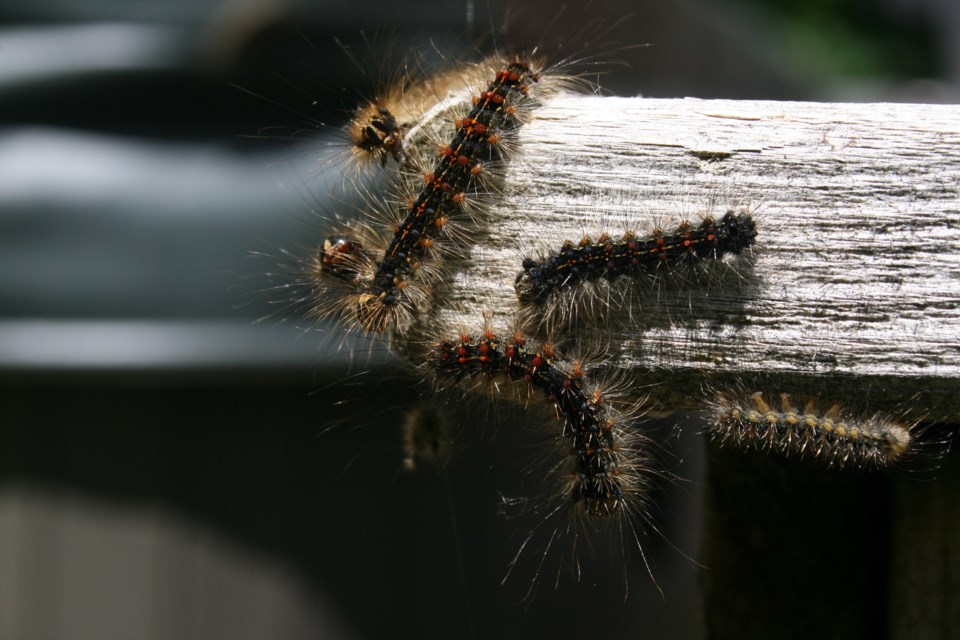Tiny Township council’s inaction to widespread spray the municipality with pesticide against the gypsy moth infestation at the start of this year was the subject of a letter of concern sent to the committee of the whole last week.
Lafontaine Area Shoreline Homeowners Association (LASHA) president Chuck Stradling wrote the letter which stated that their members were nearly unanimous in late 2020 for supporting the aerial spraying of Btk pesticide over the municipality, and disheartened when Tiny was unable to provide contiguous coverage thus cancelling the initiative.
“After 16 months of COVID-19 restrictions, residents can’t even enjoy their backyard space and are captives in their own homes,” wrote Stradling.
Stradling urged council to take a proactive stance against the invasive species before the destructive three-year cycle can enter a fourth year in 2022.
“I just wanted to say that I, never in my life, figured I’d receive so many emails about caterpillars,” said Deputy Mayor Steffan Walma.
Walma asked staff about the merits of a municipal spray program, if the spray would be isolated to just municipal property or if it could affect private property.
CAO Robert Lamb, who was hired by Tiny in early 2021 and was not around during Stradling’s previous correspondence with council, offered to respond to Walma’s question.
“If I’d have been part of the discussions,” said Lamb, “I would’ve been very adamant in the fact that the township should not be putting in place a program that sprays private property. The liability concerns would’ve been so… vast. Plus the cost of it: where do you decide who, and where, and how much you’re going to spray when it comes to private properties?”
Lamb said that Ontario municipalities which have used a spray program on their own parklands and boulevards have done so with great concern in controlling the mitigation factors.
And while there are complaints about the gypsy moths, there are also complaints from people who have had over-spray onto their private property and objected to that as well, he noted.
“It would’ve been very difficult and not a program that, as your chief advisor, I would recommend council should ever consider which is on a private property.”
Coun. Tony Mintoff countered Lamb by expressing the overwhelming outcry by Tiny residents that the municipality should take a stronger stance, doing whatever it takes in the fight against the destructiveness of the invasive species.
In Stradling’s letter, mention was made of council’s discussions with aerial pest control business Zimmer Air Services last year. Had council committed to the spray program, the cost would have been around $100 per household, according to Stradling.
Instead, Zimmer Air backed out of discussions, explained Mintoff.
“I’m going to be blunt. We (council) spent quite a bit of time and created some delays in terms of finally adopting a policy last year to the point where it ran us a little bit tight at the time," said Mintoff.
"They obviously have a business case that they have to solve as well, so the contiguous thing is part of it, but in my questions to them they denied denying services to anybody for any other reason than that it wasn’t contiguous and it didn’t make their business case,” he said.
Tim Leitch, the township's director of public works, added: “When we did pass the over-spray policy — allowing it — and engaged with our residents, we had two associations take us up on that: the Farlane Lake and the Thunder Beach. Other than that, we had no other requests for over-spray on municipal property.”
Mintoff put forward a motion to invite Zimmer Air to be present at the next committee of the whole meeting later this month, to clarify their reasons for withdrawing as well as to provide insight on practices against gypsy moths heading into 2022.



